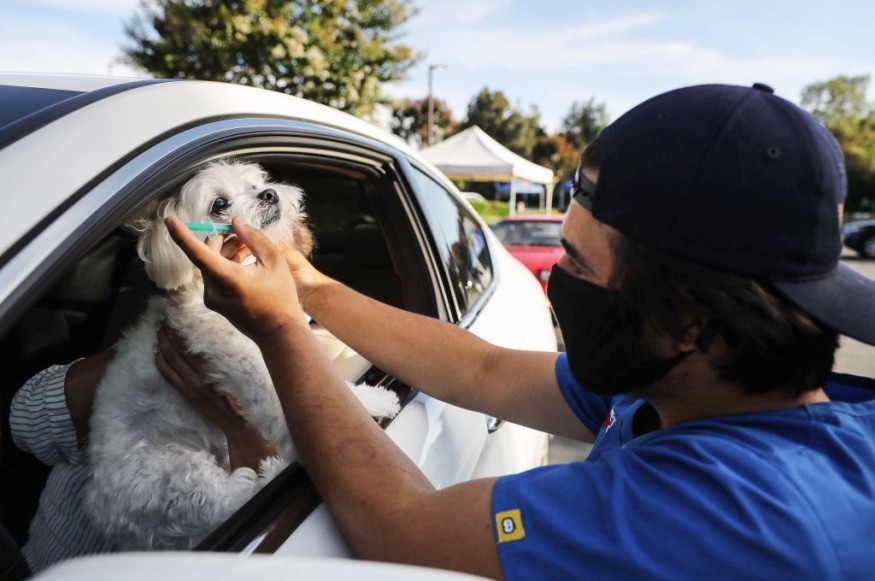Amid the rising COVID-19 cases, animals are also at risk. Ever since the pandemic began, there have been many reports of SARS-CoV-2 outbreaks in wildlife worldwide. To curb these cases, Russia became the first country to introduce a COVID-19 vaccine for animals called Carnivak-Cov.
Scientists at the Federal Service for Veterinary and Phytosanitary Surveillance have been working for months to develop a vaccine for our furry friends.
The Carnivak-Cov vaccine is intended for dogs, cats, minks, foxes, and other animals, as reported by Washington Post.
Carnivak-Cov vaccine: How effective is it?
Experts have conducted clinical trials as early as October 2020. The vaccine was tested on various animals, including Arctic foxes, minks, and cats, to name a few.
According to Russian scientists, the vaccine showed promising results during their research. Konstantin Savenkov, Rosselkhoznadzor deputy head, stated that all animals given the shots during the testing period developed antibodies against coronavirus.

Read More: Finding Nemo? New Species of Peacock Spider With Orange and White Face Named After Pixar Character
"Carnivak-Cov, a sorbate inactivated vaccine against the coronavirus infection ... is the world's first and only product for preventing covid-19 in animals. The outcome of the research gives us grounds to conclude that the vaccine is safe and has strong immunogenic effect," added Savenkov.
Scientists are hoping that the vaccine will produce antibody resistance that can last up to six months. Russian news agency Tass reports that the mass production of world's first COVID-19 vaccine for animals may be formally launched in April.
Several countries express interest in vaccine
And while mass production of the vaccine is still on the way, several countries have already expressed interest in Carnivak-Cov.
According to Inquirer, animal-breeding facilities and private companies from Greece, Poland, Austria, the United States, Canada, and Singapore are eyeing the vaccine.
"As COVID-19 cases are registered in animals in many countries worldwide, purchases of the Federal Center for Animal Health's vaccine, are planned by domestic animal-breeding enterprises and commercial firms from Greece, Poland and Austria," says Savenkov.
Furthermore, the vaccine is also expected to prevent virus mutations in animals, which can lead to disastrous outbreaks. In Denmark, 15 million minks found carrying a mutated variant had to be culled last year.
Are animals susceptible to COVID-19?
According to CDC, there were a few reported cases of human-to-animal transmission, especially during close contact. For this reason, pet owners with COVID-19 are advised to stay away from their pets to lessen the risk of transmission.
Aside from house pets, animals in zoos, sanctuaries, and farms are also susceptible to COVID-19.
Related Article: Not Animals: Humans Are Probably the Carriers of COVID-19 Virus to Wuhan, Contrary to China's Claims
© 2026 NatureWorldNews.com All rights reserved. Do not reproduce without permission.





